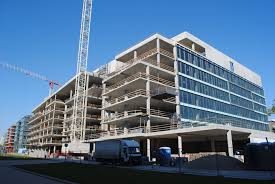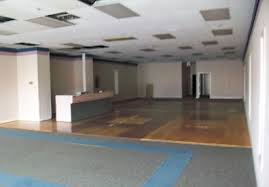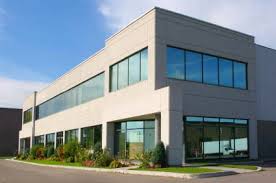
Today we are going to teach you how to underwrite a $50 million commercial construction loan. You will learn the six ratios that a bank underwriter will use to determine whether or not to approve your commercial construction loan request, and we are going to do this using understandable, layman's English.
Interesting note: C-Loans.com recently closed an $18.5 million commercial construction loan on a mixed-use project in Wisconsin. The lucky broker who brought that deal to C-Loans earned a whopping $92,500 loan fee. Wow. I'll betcha that fee paid some bills. Note to self: Submit my commercial construction loans through C-Loans.com.
After the commercial real estate meltdown of 2008 and during the Great Recession, commercial banks had a zero appetite for conventional commercial construction loans. By conventional, I mean non-SBA, non-USDA, and non-EB-5 loans. In plain English, conventional here means ordinary, garden-variety commercial construction loans. In an earlier blog post I wrote that conventional commercial construction loan requests were as welcome during the Great Recession as a male stripper at a (hetereosexual) bachelor party. Ha-ha!
For six long years, there was very little commercial construction in the U.S. In the meantime, many vacant and neglected commercial buildings have had their water pipes burst during a cold winter, making them essentially now almost worthless. Other vacant commercial buildings have been vandalized and stripped of their copper wiring. The roofs of other vacant commercial buildings have leaked, leading to dangerous black mold. A great many productive commercial buildings became unusable. They disappeared from the country's stock of available commercial buildings.
At the same time, the population of the U.S. has grown. Workers are finally getting back to work. The auto industry in America is booming again, leading to the return of many manufacturing jobs in the Midwest. Shale oil discoveries have caused a significant migration of workers to North Dakota, Wyoming, Texas, and other oil-patch states. Many areas of the U.S. now need new commercial buildings.
Therefore the hottest new commercial loan product right now is a conventional commercial construction loan. And where do you find hundreds of commercial banks hungry to make conventional commercial construction loans? C-Loans.com.
But how do you know if the commercial construction loan lead in your hand is a hottie or a complete waste of your time? You need to know how to underwrite commercial construction loans. This article will serve as a primer.
Conventional commercial construction loans are underwritten using six financial ratios. The most important of these ratios is the loan-to-cost ratio. The loan-to-cost ratio must not be confused with the loan-to-value ratio.
The loan-to-cost ratio is the construction loan amount divided by the total cost of the project. Traditionally this ratio should not exceed 80%. In other words, the developer is responsible for contributing at least 20% of the total cost of the project - usually in the form of free-and-clear and entitled land, with most of the architectural and engineering costs prepaid for by the developer. Since many commercial banks are still licking their wounds from the Great Recession, many banks are limiting their loan-to-cost ratios to just 70% to 75%. This means that the developer must modernly cover 25% to 30% of the total cost of the project.
The next ratio is the loan-to-value ratio. The loan-to-value ratio on a commercial construction loan request is computed by taking the construction loan amount and dividing it by value of the commercial property, when it is completed and fully-leased. The bank's appraiser will compute this value for you. The loan-to-value ratio on a commercial construction loan request should not exceed today around 70% to 75%.
The third ratio to look at when underwriting a commercial construction loan is the debt service coverage ratio. The debt service coverage ratio is the property's Net Operating Income (NOI), upon completion and leasing, divided by the annual debt service (P&I payments) on the proposed takeout loan. A takeout loan is just a permanent loan used to pay off a construction loan. This ratio should exceed 1.25. The good news is that with interest rates so low today, most commercial properties easily pass this test.
The next ratio to look at when underwriting a commercial construction loan is the profit ratio. The profit ratio is the difference between the fair market value of the property, upon completion and leasing, and the total cost of the project, all divided by the total cost of the project. What we are trying to determine here is whether the developer stands to earn any profit by building this commercial building. If not, he might be tempted to just walk away at the first appearance of a cost overrun. The profit ratio should exceed 20% to 22%. In other words, the commercial property should be worth at least 20% to 22% more than it costs to build.
The next ratio to look at when underwriting a commercial construction loan is the net-worth-to-loan-size ratio. The developer's net worth should be at least as large as the construction loan he is requesting. A guy with a $1.5 million net worth should not be requesting a $6 million commercial construction loan. This ratio needs to be at least 1.0.
The last ratio to look at when underwriting a commercial construction loan is the debt yield ratio. The debt yield ratio is a brand new ratio developed after the huge losses in commercial mortgage-backed securities suffered by CMBS bond investors during the Great Recession. The debt yield ratio is computed by taking the property's net operating income (NOI) and dividing it by the construction loan amount. This ratio should not be less than 8.5% to 9% today.
Please note that the debt yield ratio is different from the debt service coverage ratio. It does not look at today's low commercial mortgage interest rates at all. In fact, this ratio was invented to rein in the excessive leverage that can occur in commercial mortgage finance when interest rates and cap rates are low.
[Editor's note: This article was updated August 25, 2016]
Do you need a commercial construction loan or any other type of commercial real estate loan? If so, please click the maroon button below.
In addition to the 750 hungry commercial lenders you'll find on C-Loans, we also give away a free list of 2,000 commercial lenders. The lenders on The Blackburne List are different from the 750 commercial lenders you'll find on C-Loans.





 This article is important to you because someday you may really-really need a portfolio commercial lender willing to make a non-recourse commercial loan.
This article is important to you because someday you may really-really need a portfolio commercial lender willing to make a non-recourse commercial loan.


 I have been in the commercial loan business for over 34 years now, but I still learn more about commercial real estate finance ("CREF") almost every day. This week I learned a new commercial loan term:
I have been in the commercial loan business for over 34 years now, but I still learn more about commercial real estate finance ("CREF") almost every day. This week I learned a new commercial loan term:

 Yesterday I received an email advertisement from a commercial loan company offering
Yesterday I received an email advertisement from a commercial loan company offering 
 This article will teach commercial loan brokers where to go to find lots of commercial real estate loans. It will also teach commercial real estate brokers (sales brokers) about some great new commercial real estate finance tools - really cool stuff - that will make it easier for them for them to sell or buy commercial real estate.
This article will teach commercial loan brokers where to go to find lots of commercial real estate loans. It will also teach commercial real estate brokers (sales brokers) about some great new commercial real estate finance tools - really cool stuff - that will make it easier for them for them to sell or buy commercial real estate.

 Our commercial hard money mortgage company,
Our commercial hard money mortgage company, 
 Finding a lender for a commercial loan secured only by land is pretty hard these days. Many commercial lenders are still sitting on huge portfolios of land upon which they foreclosed during the Great Recession.
Finding a lender for a commercial loan secured only by land is pretty hard these days. Many commercial lenders are still sitting on huge portfolios of land upon which they foreclosed during the Great Recession.


 The new Dodd-Frank Regulations have driven a ton of former residential loan agents into the commercial loan business. I have never seen so many guys chasing commercial loan leads. In a market flooded with commercial loan agents, the wise commercial mortgage broker will adjust his marketing strategy. Commercial loan brokers need to market for commercial loans more directly, rather than just marketing to residential loan agents.
The new Dodd-Frank Regulations have driven a ton of former residential loan agents into the commercial loan business. I have never seen so many guys chasing commercial loan leads. In a market flooded with commercial loan agents, the wise commercial mortgage broker will adjust his marketing strategy. Commercial loan brokers need to market for commercial loans more directly, rather than just marketing to residential loan agents.
 In my opinion, purchase money commercial loans are much safer for a commercial lender than refinances. The reason this is important to you is because soon wealthy real estate investors will be returning to the commercial-investment market, and you will be working on a ton of
In my opinion, purchase money commercial loans are much safer for a commercial lender than refinances. The reason this is important to you is because soon wealthy real estate investors will be returning to the commercial-investment market, and you will be working on a ton of 



